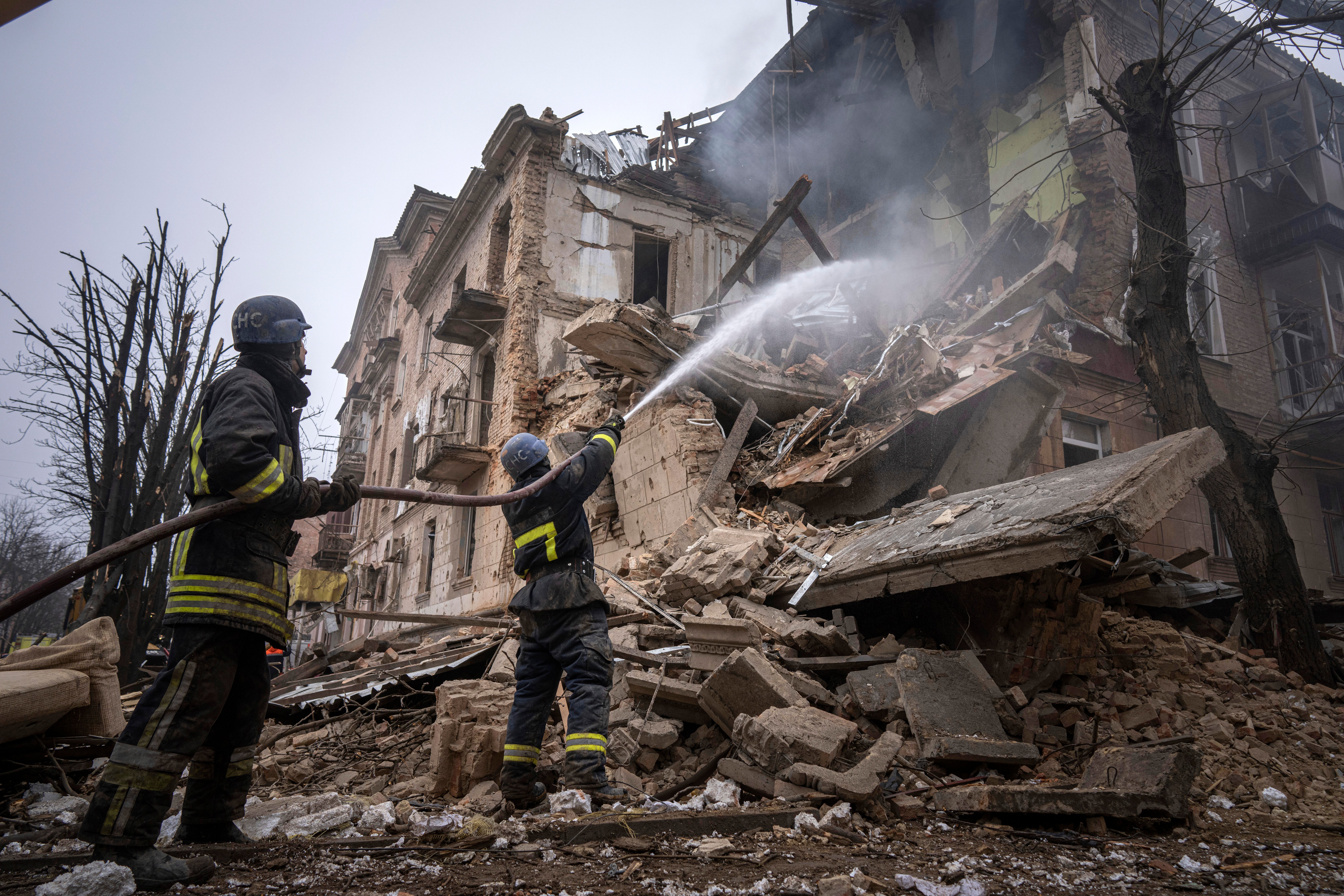$2B in loans to help Ukraine's ag, fuel import businesses
Private businesses in Ukraine are in line to receive $2 billion in financing arranged by the International Finance Corp. to help rebuild the country’s agriculture and fuel import industries and other ventures, which have faced extensive losses because of the war

Your support helps us to tell the story
From reproductive rights to climate change to Big Tech, The Independent is on the ground when the story is developing. Whether it's investigating the financials of Elon Musk's pro-Trump PAC or producing our latest documentary, 'The A Word', which shines a light on the American women fighting for reproductive rights, we know how important it is to parse out the facts from the messaging.
At such a critical moment in US history, we need reporters on the ground. Your donation allows us to keep sending journalists to speak to both sides of the story.
The Independent is trusted by Americans across the entire political spectrum. And unlike many other quality news outlets, we choose not to lock Americans out of our reporting and analysis with paywalls. We believe quality journalism should be available to everyone, paid for by those who can afford it.
Your support makes all the difference.Private businesses in Ukraine are in line to receive $2 billion in financing arranged by the International Finance Corp. to help rebuild the country's agriculture and fuel import industries and other ventures, which have faced extensive losses because of the war.
The IFC, a member of the World Bank Group, provides private sector financing to developing countries. The loans differ from the billions that Ukraine has received in grants and other forms of no-strings-attached aid from donor nations, as they must be paid back.
Since Russia invaded in February, at least 5 million jobs have been lost, according to Ukraine’s Ministry of Economy. The National Bank of Ukraine estimates that 11% of businesses had closed as of September and more than half were operating below capacity.
Loans to the country's private sector will become more important in coming years as Ukraine's finance ministry copes with a widening budget deficit. In addition, grants and other foreign aid are not guaranteed, and Republicans in the U.S. Congress have signaled uncertain support for Ukraine when they take control of the House in January.
Getting private financing is difficult for countries facing war, floods and other calamities.
“You’re looking at a level of risk that is just astounding,” said Kenneth Rogoff, a Harvard University economist. Even before the war in Ukraine, corruption was rampant and Ukraine had difficulty getting investment.
With a war raging, Rogoff said, “how do you make a loan with any kind of investment knowing you may not be paid back.” He said that, for now, lenders “can make a loan for humanitarian reasons or we need to give them money.”
Ukrainian agribusiness expert Alex Lissitsa told the Ukrainian Weekly, an English-language news organization headquartered in the U.S, that some of the biggest threats to Ukrainian agriculture are related to financing. “We have problems with liquidity, because we have problems with logistics in Ukraine,” he said last week.
Still, private aid will likely remain important for the rebuilding of the country, according to the “ Blueprint for the Reconstruction of Ukraine,” written by a group of prominent economists studying the impacts of the war, including Rogoff, Torbjörn Becker, Yuriy Gorodnichenko and Tymofiy Mylovanov.
Mylovanov, president of the Kyiv School of Economics, told The Associated Press that “at some point debt sustainability will be an issue."
Ukraine’s projected real GDP is expected to decline by 35%, due in large part to the Russian invasion, according to IMF data. And Ukraine’s finance minister told the AP this month that the damage caused by Russian missile attacks on civilian infrastructure would cost 0.5% of annual economic output next year, adding to the burden as Ukraine tries to cover a budget deficit equivalent to $38 billion.
The $2 billion IFC package includes up to $1 billion from its own account, with additional financing contingent on guarantees from donor governments.